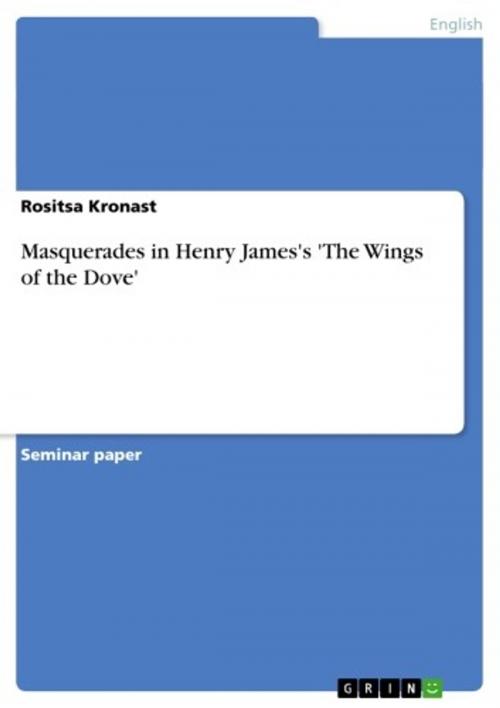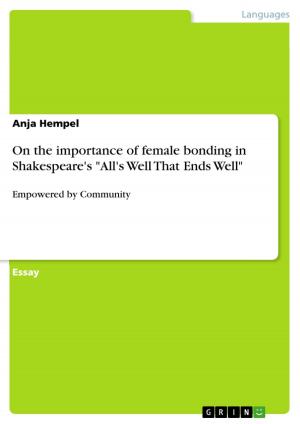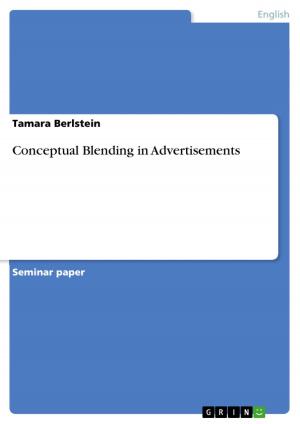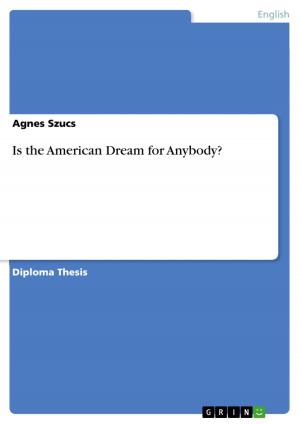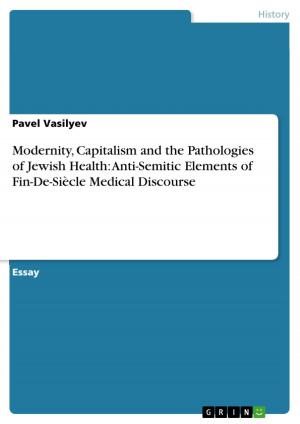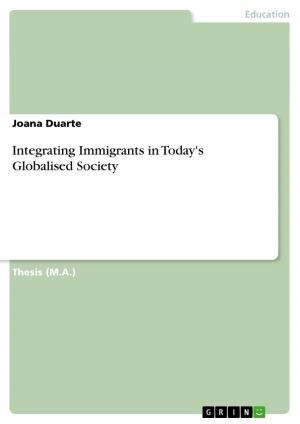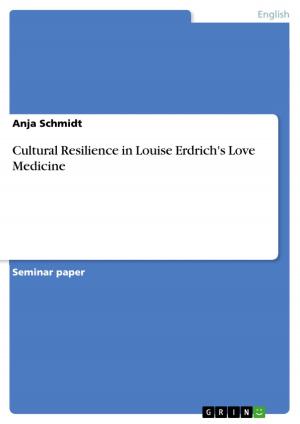| Author: | Rositsa Kronast | ISBN: | 9783640566105 |
| Publisher: | GRIN Publishing | Publication: | March 16, 2010 |
| Imprint: | GRIN Publishing | Language: | English |
| Author: | Rositsa Kronast |
| ISBN: | 9783640566105 |
| Publisher: | GRIN Publishing |
| Publication: | March 16, 2010 |
| Imprint: | GRIN Publishing |
| Language: | English |
Seminar paper from the year 2009 in the subject English Language and Literature Studies - Comparative Literature, grade: 1,0, LMU Munich (Department für Anglistik und Amerikanistik), course: Hauptseminar Writing Venice Around 1900, language: English, abstract: Focusing on Henry James's The Wings of the Dove, the present paper explores a plurality of masquerades, conditioned by open secrets and their influence on the communication between the characters. In this respect, I consider masquerades in terms of mutual contracts. One pretends to be someone else and others pretend to believe in one's pretences. Eventually, however, the performers develop the 'symptoms' of their roles in themselves and, thus, blur the distinction between dishonest and honest performances. Therefore, I argue that the masquerades in The Wings of the Dove are performances, which submit to the logic of simulation , revoking the separation of the real from the simulated. Besides, I refer to masks and masquerades not in a literal, but in a metaphorical sense. The first chapter, Masks, examines a rich American heiress's (Milly Theale) designations as dovelike and incurably ill, which turn into self-fulfilling prophecies, thus, indicating a complex relation between masks and the performativity of language and silence. The second chapter, Secrets, focuses on the pluralities of knowledge, ignorance and silence, which Milly's mysterious illness and Lionel 's unknown crime presuppose. The third chapter, Games, argues that the masquerades in The Wings of the Dove violate the binary opposition between truth and deception. Therefore, they are to be understood in regard to the mentioned notion of simulation. The fourth chapter, Coming Outs and Double Binds, demonstrates that coming out of the closet, in other words, the disclosure of one's secret, leads to another closet. The last one, Venice, discusses the Italian city in terms of its relation to the characters' masquerades and importance for the Jamesian text.
Seminar paper from the year 2009 in the subject English Language and Literature Studies - Comparative Literature, grade: 1,0, LMU Munich (Department für Anglistik und Amerikanistik), course: Hauptseminar Writing Venice Around 1900, language: English, abstract: Focusing on Henry James's The Wings of the Dove, the present paper explores a plurality of masquerades, conditioned by open secrets and their influence on the communication between the characters. In this respect, I consider masquerades in terms of mutual contracts. One pretends to be someone else and others pretend to believe in one's pretences. Eventually, however, the performers develop the 'symptoms' of their roles in themselves and, thus, blur the distinction between dishonest and honest performances. Therefore, I argue that the masquerades in The Wings of the Dove are performances, which submit to the logic of simulation , revoking the separation of the real from the simulated. Besides, I refer to masks and masquerades not in a literal, but in a metaphorical sense. The first chapter, Masks, examines a rich American heiress's (Milly Theale) designations as dovelike and incurably ill, which turn into self-fulfilling prophecies, thus, indicating a complex relation between masks and the performativity of language and silence. The second chapter, Secrets, focuses on the pluralities of knowledge, ignorance and silence, which Milly's mysterious illness and Lionel 's unknown crime presuppose. The third chapter, Games, argues that the masquerades in The Wings of the Dove violate the binary opposition between truth and deception. Therefore, they are to be understood in regard to the mentioned notion of simulation. The fourth chapter, Coming Outs and Double Binds, demonstrates that coming out of the closet, in other words, the disclosure of one's secret, leads to another closet. The last one, Venice, discusses the Italian city in terms of its relation to the characters' masquerades and importance for the Jamesian text.
